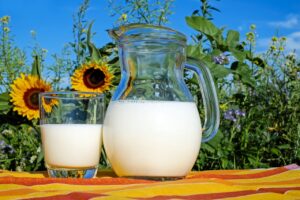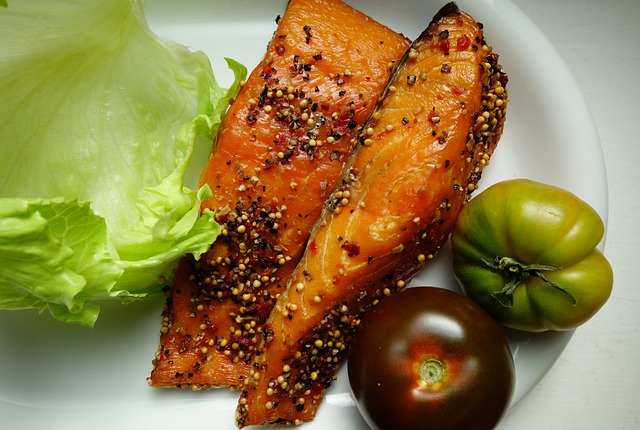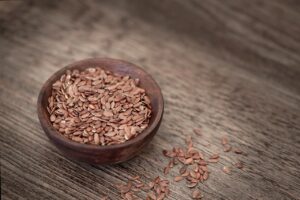Osteoporosis is a condition characterized by weakened bones, increasing the likelihood of fractures. It’s an after effect of a condition when the body either loses too much bone mass, produces too little amount of bone, or both, leading to a disruption in bone turnover. This imbalance can cause bones to become porous and brittle, particularly in areas like the spine, hip, and wrist, making fractures more common. Often called a “silent disease,” osteoporosis may progress without symptoms until a fracture is detected. However, you can always opt for a cure by following an Osteoporosis diet.
7 Must Add Superfoods To Your Osteoporosis Diet
Risk factors include aging, being female in their late 40s, having a small body frame, hormonal changes such as menopause, and a family history of the condition. Certain medications and lifestyle factors, such as lack of physical activity and poor nutrition, also lead to adverse effects. Treatment typically involves a combination of medication to prevent further bone loss, dietary adjustments, and Calcium and Vitamin D supplementation. Also, weight-bearing exercises and a mindful approach while walking will save the day. Detecting and managing osteoporosis early is vital for reducing fracture risk and preserving bone health. Diet has a lot to do with one’s health! Here are some of the superfoods to eat regularly for bone health as part of your Osteoporosis diet
Milk

Milk is frequently praised for its ability to support bone health. The high calcium content in milk is vital for the development and upkeep of sturdy bones. Calcium is an essential mineral that plays a key role in bone density and resilience. Thereby aiding in the prevention of conditions such as osteoporosis.
Furthermore, milk serves as a valuable source of vitamin D, which facilitates the absorption of calcium in the body. When combined, calcium and vitamin D function cooperatively to promote ideal bone health. By including milk in your diet, along with other calcium-rich foods, and maintaining a regimen of regular exercise, you can effectively foster the development of robust and healthy bones over the course of your lifetime.
Soy Foods

Soy foods are frequently suggested to promote bone health because they contain abundant nutrients that contribute to bone density. The list includes food options like tofu, tempeh, soy milk, and edamame. All are notably high in calcium, a crucial element for the development and maintaining bone health.
Incorporate soy foods into your Osteoporosis diet, along with other calcium-rich foods and regular exercise. It will help support optimal bone health and reduce the risk of the disease.
Nuts

Nuts contribute to optimal bone health due to the included nutrient content. They are rich in calcium, magnesium, phosphorus, potassium, and vitamin K. All of which play vital roles in bone metabolism and maintenance.
Additionally, nuts contain healthy fats and protein, which support overall bone health. Incorporating a variety of nuts, such as almonds, walnuts, and cashews, into a balanced diet can help support strong and healthy bones. However, it’s essential to consume nuts in moderation as they are also calorie-dense.
Spinach

Spinach is beneficial for bone health. It is particularly high in calcium, which is vital for maintaining bone density and strength. Additionally, spinach contains vitamin K, which plays a crucial role in bone metabolism and helps to regulate calcium levels in the body.
Furthermore, spinach is a good source of magnesium, another mineral important for bone health. It helps to convert vitamin D into its active form, which is necessary for calcium absorption.
Fatty Fish

Fatty Fish is beneficial for bone health due to its high content of omega-3 fatty acids, which have anti-inflammatory properties. The overall setup helps reduce bone loss and decrease the risk of osteoporosis.
Additionally, fatty fish such as salmon, mackerel, and sardines are excellent sources of vitamin D. These play a crucial role in calcium absorption and bone mineralization. Including fatty fish in your diet can contribute to stronger bones and overall bone health.
Legumes

Legumes like beans, lentils, and chickpeas support bone sturdiness thanks to their nutrient-rich composition. They provide vital elements such as calcium, magnesium, potassium, phosphorus, and vitamin K, all of which are fundamental for bone formation, density, and resilience.
Incorporating legumes into your diet as part of a diverse and well-balanced meal plan can enhance overall bone health and lower the likelihood of osteoporosis and fractures.
Flax Seeds

Flax seeds offer omega-3 fatty acids, which are known for their anti-inflammatory properties. These acids can potentially lower the risk of osteoporosis by enhancing bone density and resilience.
Flax seeds contain significant amounts of magnesium and phosphorus, which aid in bone mineralization. Adding flax seeds to your diet, such as by incorporating them into salads, yogurt, or smoothies, can be an advantageous approach to promoting bone health in conjunction with other dietary and lifestyle choices.
To summarize, integrating superfoods such as milk and flax seeds into your Osteoporosis diet can play a crucial role. Milk’s abundance of calcium and vitamin D supports the development and upkeep of robust bones, while flax seeds offer omega-3 fatty acids, magnesium, and phosphorus. All are essential for bone density and mineralization! By including these nutritious superfoods in your daily meals, alongside other calcium-rich foods and consistent physical activity, you can proactively safeguard your bone health and diminish the likelihood of osteoporosis-related issues.



